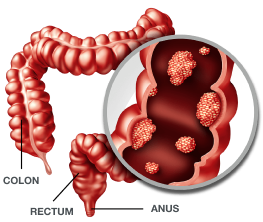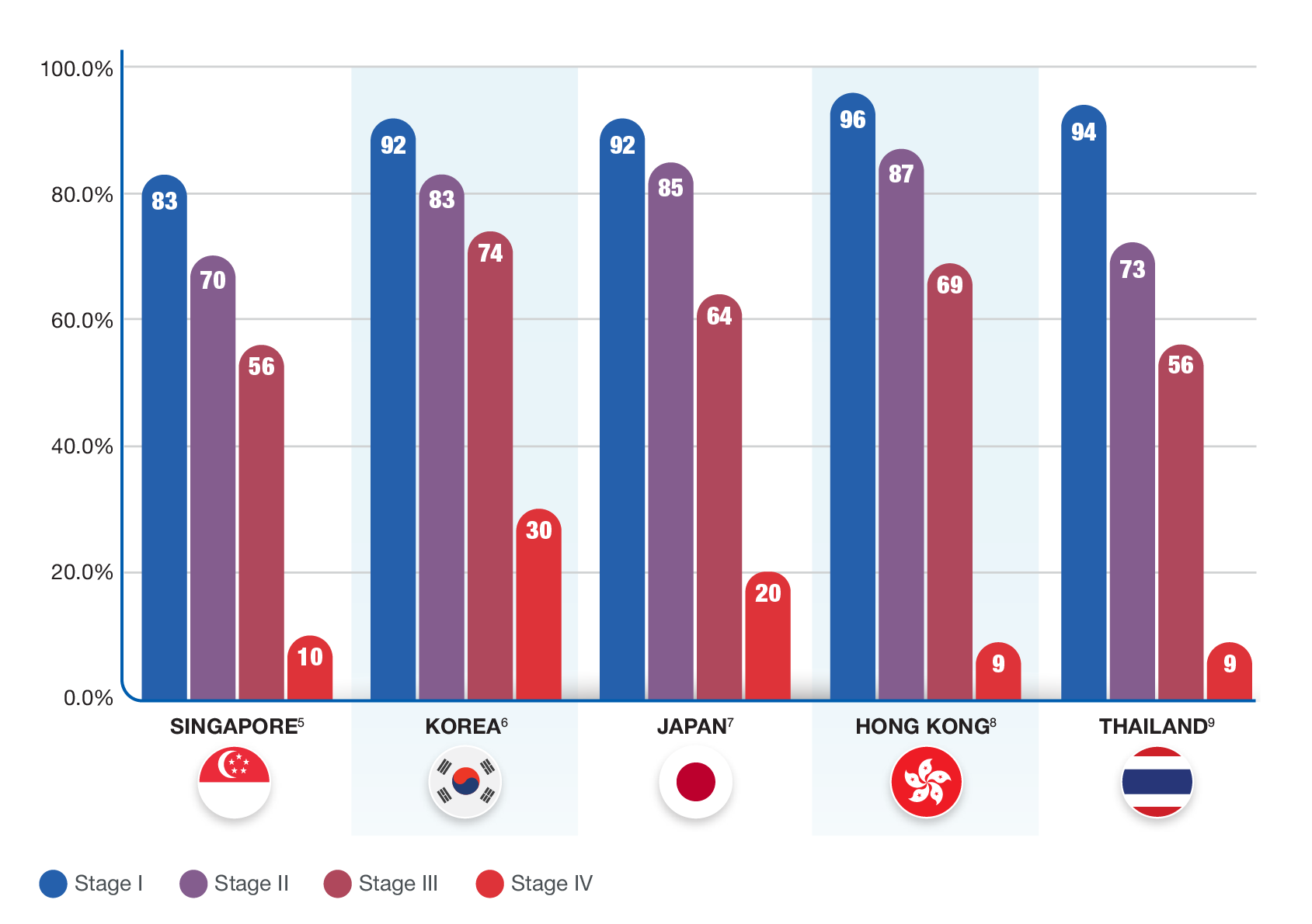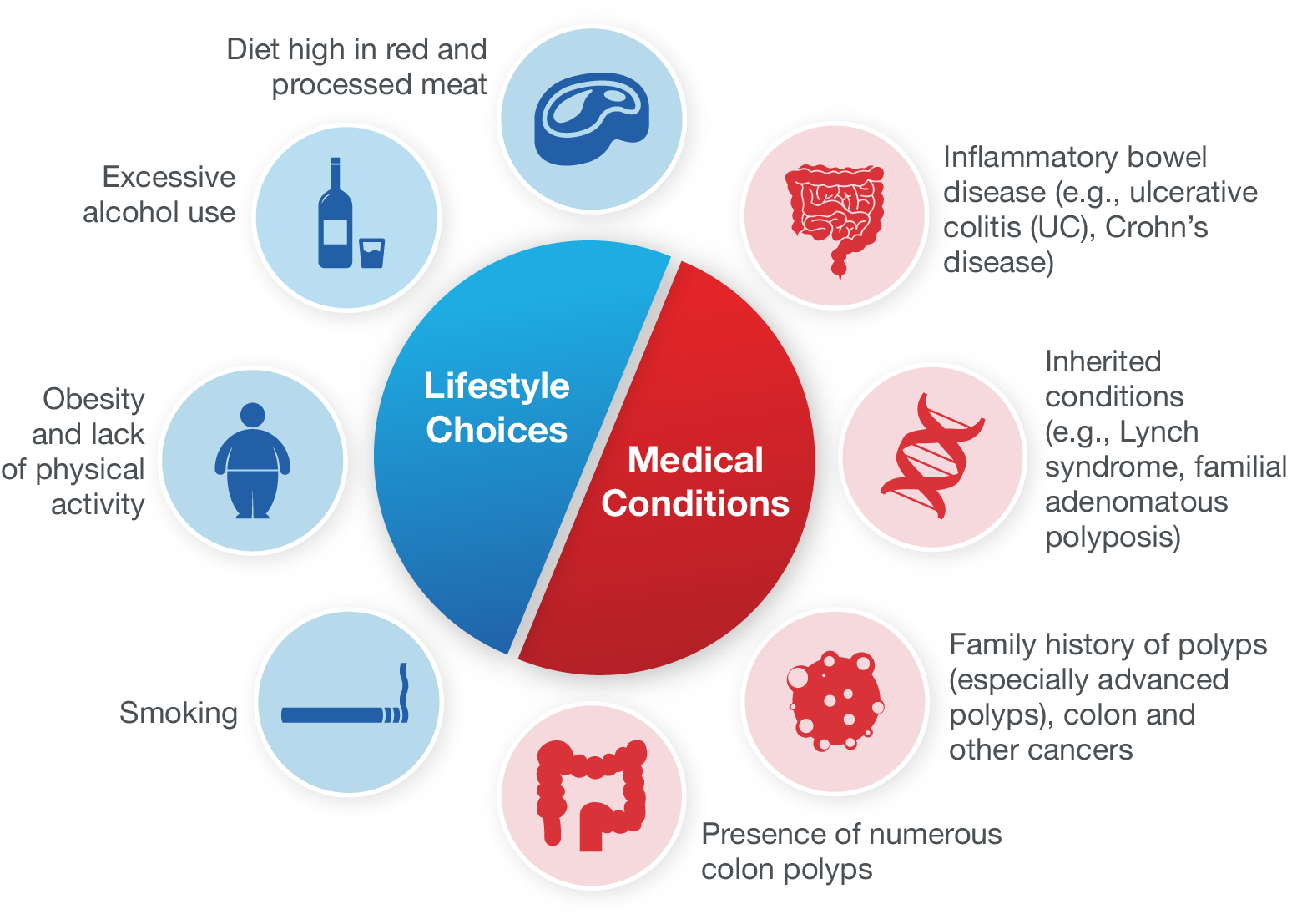Colorectal Cancer (CRC) is cancer of the colon or rectum.1 Screening tests can detect it early, leading to improved survival rates.1

Cancer staging assists physicians in devising optimal treatment strategies.2
There are 5 major stages of colorectal cancer:3

Stage 0 colon cancer is limited to the mucosa, the inner lining of the colon.

In Stage I, the tumour has grown beyond the inner lining but remains in the colon and hasn’t reached the lymph nodes.

Stage II involves the cancer penetrating the outer muscle layer of the colon without lymph node involvement.

At Stage III the cancer has extended to lymph nodes outside the colon.

By Stage IV, the cancer has spread to distant organs like the liver or lungs, possibly with lymph node presence.
Depending on the extend of spread, cancer is also grouped into 3 main categories:4
Localised: No indication of cancer spreading beyond the colon or rectum.
Regional: Cancer extending to nearby structures or lymph nodes beyond the colon or rectum.
Distant: Cancer has spread to distant body parts like liver, lungs, or distant lymph nodes.
Survival rates provide insights into the percentage of individuals who remain alive after a specific duration (typically 5 years) following their cancer diagnosis, offering valuable information about the prognosis for individuals with a similar cancer type and stage.

From the above graphs it is clear that detecting colorectal cancer early saves lives. Chance of survival when colorectal cancer is discovered in stage I is significantly higher as compared to being discovered when the colorectal cancer is in stage IV.
Below are the major symptoms of colorectal cancer:1






Colon cancer can also be detected without any symptoms.1
There are two categories of risk factors associated with colorectal cancer:1

MKTAMEA122023_030S
All images are actor portrayals only.
This is an educational website on cancer screening. This information should not be used in place of advice from your doctor or other healthcare professional. For further information and advice, please contact your doctor.
References
1. Colorectal colon cancer. Cleveland Clinic. 2023. Last Accessed Aug 2023. https://my.clevelandclinic.org/health/diseases/14501-colorectal-colon-cancer. 2. Stages of Cancer. Cancer.net. Feb 2021. Last accesssed on Aug 2023. https://www.cancer.net/navigating-cancer-care/diagnosing-cancer/stages-cancer. 3. Stages of Colon Cancer. Memorial Sloan Kettering Cancer Center. 2023. Last Accessed Aug 2023. https://www.mskcc.org/cancer-care/types/colon/stages. 4. Survival Rates for Colorectal Cancer. American Cancer Society. March 2023. Last Accessed Aug 2023. https://www.cancer.org/cancer/types/colon-rectal-cancer/detection-diagnosis-staging/survival-rates.html. 5. Lim KG, et al. Clinical characteristics and predictors of 5-year survival among colorectal cancer patients in a tertiary hospital in Malaysia. Journal of Gastrointestinal Oncology. 2020;11(2):250-259. 6. Lee S-C, et al. Epidemiology of colorectal cancer in Korea: Korean National Health insurance bigdata analysis. Annals of Oncology. September 2017. doi: https://doi.org/10.1093/annonc/mdx393.127. 7. Watanabe T, et al. Japanese Society for Cancer of the Colon and Rectum (JSCCR) guidelines 2016 for the treatment of colorectal cancer. Int J Clin Oncol. 2018 Feb;23(1):1-34. 8. Overview of Hong Kong Cancer Statistics of 2018. Hospital Authority. 2018. Last Accessed Nov 2023. https://www3.ha.org.hk/cancereg/pdf/overview/Overview%20of%20HK%20Cancer%20Stat%202018.pdf. 9. Thokanit NS, et al. Clinical Study of Long-Term Survival in Colorectal Cancer Patients in Thailand: A 10-Year Follow-Up. Iran J Public Health. 2022 Nov;51(11):2538-2548. 10. Colorectal (Colon) Cancer. What Can I Do to Reduce My Risk of Colorectal Cancer? Centers for Disease Control and Prevention. Last Accessed August 2023. https://www.cdc.gov/cancer/colorectal/basic_info/prevention.htm.